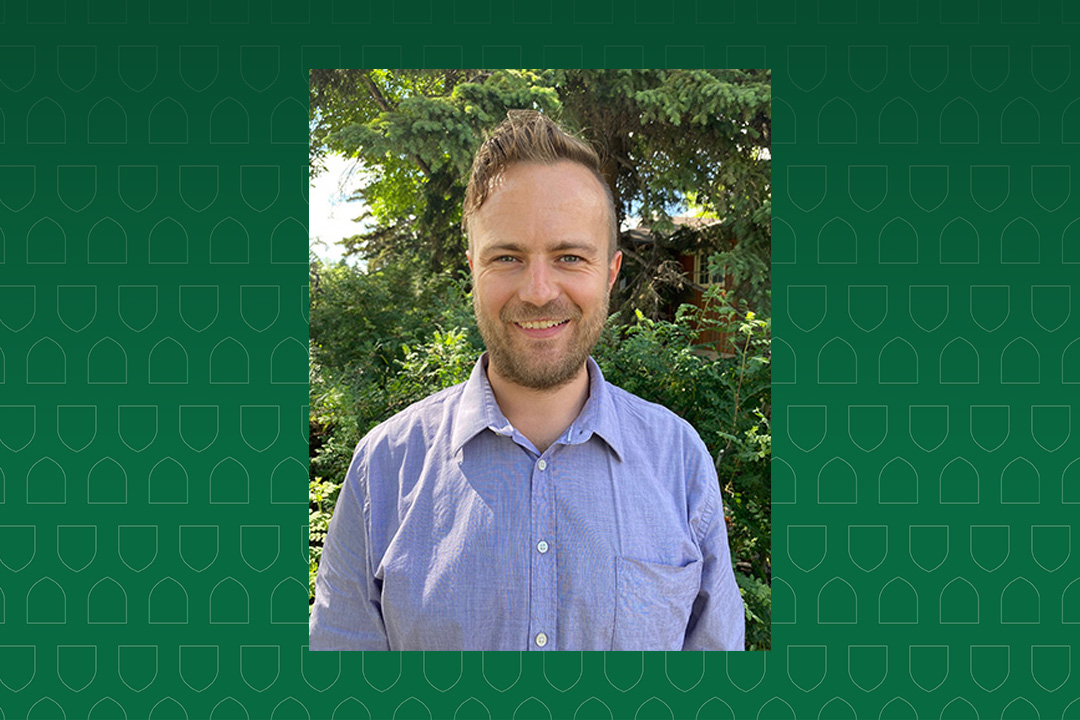
First Indigenous neurologist graduates from Saskatchewan
One of the country’s newest neurologists is Dr. Landon Perlett (MD’15), a Métis man from rural Saskatchewan. He is also the first Indigenous neurologist to graduate from the College of Medicine.
By Kristen McEwenPerlett completed both medical school and neurology residency at the University of Saskatchewan (USask), finishing in January 2021. Born in Regina, Perlett grew up on farms in rural areas, including Indian Head, Dalmeny and Lumsden.
“Being Métis means I come from a multicultural background, seeing many sides of many cultures – I’ve been able to experience life with family members who are Aboriginal or Métis,” Perlett said. “Experiencing two (cultures) has been to my benefit. It’s made me more open-minded.”
Perlett brings this quality with him into practicing medicine – in particular, neurology.
Neurology is a study of the brain, the nervous system and the impact it has on nearly every other organ in the human body. As of 2019, there are 1,080 neurologists across the country according to the Canadian Medical Association.
“It’s a system that affects every other organ, almost every other specialty,” he said. “It’s a holistic part of medicine that touches on mental health, comorbidities like cardiovascular disease, or endocrine problems, or neurologic diseases like multiple sclerosis. I liked taking a bigger picture view of a person and then breaking it down piece by piece.”
Perlett is currently a few months into a two-year fellowship in cognitive behavioral neurology at the University of Calgary. The cognitive behavioral neurology specialty focuses on cognitive processes such as dementia, Alzheimer’s disease and learning more about how the brain degenerates.
For Perlett, the most interesting aspect of neurology is the ability to take an overall problem view and break it down to find the source. He also takes an approach to medicine, and patients, that isn’t taught in a medical degree.
“Even if it turns out that the patient may not have a neurologic disease, I think how I would help this person even without medicine as a background,” he added. “‘How can I help this person even if I’m not the doctor they need right now?’”
Perlett’s interest in medicine began as an archeology undergraduate student at the USask College of Arts and Science.
“A lot of archeologists deal with bones and teeth,” he explained. “I was fascinated by the human anatomy at that point in time but I never went into university thinking about doing medicine.”
It wasn’t until taking a human anatomy course for his undergraduate degree, that he started spending nearly every day in the anatomy lab. Perlett realized he had a passion for learning more about the human body and how it works.
“Why not spend more time learning how the body works? I thought I would never get bored if I chose medicine as my end goal,” he added.
As a medical student, Perlett quickly decided that neurology was the specialty he was most interested in, thanks to a couple of mentors, including neuroscientist Dr. Sean Mulligan, and neurologists Drs. Paul Masiowski and Ted Atkins.
“Neurology is a specialty that not many consider as a career,” Perlett said. “For me, it seemed like a logical, rational specialty. If I had to choose one part of the body to study for the rest of my life, the brain seemed like a good choice.”
“I wanted to challenge myself and choose a job where I could say I helped a few people,” he said.
As he progresses in his career, Perlett is looking to take what he learned from his mentors to pass onto the medical students he mentors.
“I know that neurology can be an intense specialty to learn about,” he said. “My hope is that when I’m teaching other students and residents, I can help make neurology approachable and understandable – the way my mentors guided me.”
For aspiring medical students, or neurologists, Perlett had a piece of advice to share.
“My piece of advice would be – this might sound corny – is to follow your passions and make sure you’re studying or learning about is important, or special to you. Then the work and learning is fun every day.”
“I have no regrets about taking archeology – I still read about ruins and stuff like that to this day,” he added. “Once I decided to pursue medicine, I still made the learning part fun for myself.”
Article re-posted on .
View original article.

